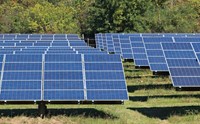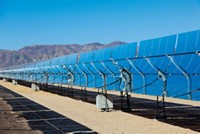Advertisement
Grab your lab coat. Let's get started
Welcome!
Welcome!
Create an account below to get 6 C&EN articles per month, receive newsletters and more - all free.
It seems this is your first time logging in online. Please enter the following information to continue.
As an ACS member you automatically get access to this site. All we need is few more details to create your reading experience.
Not you? Sign in with a different account.
Not you? Sign in with a different account.
ERROR 1
ERROR 1
ERROR 2
ERROR 2
ERROR 2
ERROR 2
ERROR 2
Password and Confirm password must match.
If you have an ACS member number, please enter it here so we can link this account to your membership. (optional)
ERROR 2
ACS values your privacy. By submitting your information, you are gaining access to C&EN and subscribing to our weekly newsletter. We use the information you provide to make your reading experience better, and we will never sell your data to third party members.
Environment
Living Within Our Means
June 16, 2008
| A version of this story appeared in
Volume 86, Issue 24
In response to "Energy Defines Sustainability," the premise that inexpensive and nonpolluting electricity and transportation fuels define sustainability is not only unsubstantiated but clearly false (C&EN, April 14, page 11). Consider the half century 1950 to 2000. Most would have considered this to be the time of inexpensive and nonpolluting electricity and transportation fuels, but clearly it was not.
Lord Acton’s dictum, “Power corrupts, and absolute power corrupts absolutely,” is most appropriate for sustainability considerations. We must learn to live within the energy input we receive daily from the sun, including winds and tides generated by the sun, without using other stores of energy (even nuclear) if we are to develop a sustainable society. Abundant food, clean water, and human well-being will only be available for all when we learn to limit our exponential population growth and live within our energy means.
Without limiting population growth, we will suffer the same disastrous crashes that every other biological system faces given exponential growth rates and limited resources. In addition, any one of a number of cataclysmic events, such as a Yellowstone-style volcano or complete melting of Arctic sea ice, could also send us perilously close to the ruin of society as we know it today. We may already be well within the 11th hour of human society.
Ted Foster
Placerville, Calif.
CORRECTION
May 19, page 36: The article on drugs used in lethal injections should have included potassium chloride, not potassium chlorate.




Join the conversation
Contact the reporter
Submit a Letter to the Editor for publication
Engage with us on Twitter